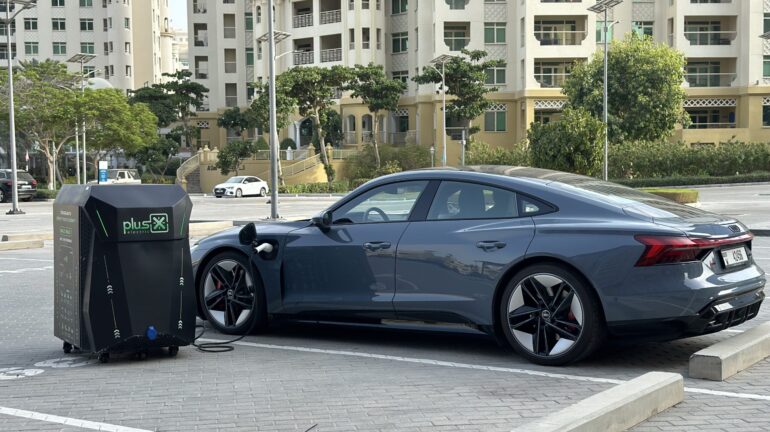
The UAE’s electric vehicle (EV) market is poised for significant transformation in 2025, underpinned by government initiatives, surging consumer demand, and rapid advancements in infrastructure. With the nation targeting its Net Zero by 2050 Strategic Initiative, the EV market is forecast to grow at a compound annual growth rate (CAGR) of 32.1% between 2023 and 2028, and EVs are expected to comprise 20% of vehicles on UAE roads by 2030.
Here are the top five trends that will shape the EV ecosystem in 2025:
- Transformative Business Models for EV Charging
Innovation in EV charging is driving convenience and accessibility for users across the UAE. Subscription-based models, on-demand mobile charging units, and valet charging services are becoming popular, especially among urban dwellers without access to home chargers and businesses managing large EV fleets. Additionally, the limited electricity capacity for buildings across the city poses a significant challenge for residents, especially those living in apartments, to install fixed chargers. Portable “charge as a service” solutions will grow as they are designed to address this specific issue, providing a practical and efficient alternative for EV users.
- Expanding Charging Infrastructure and Regulation
The UAE is experiencing rapid expansion in its EV charging network, supported by regulatory frameworks and private sector investments. Government entities, such as DEWA, are playing a pivotal role by introducing unified pricing structures for charge point operators (CPOs) — set at AED 0.7 per kWh for AC charging and AED 1.2 per kWh for DC charging — and implementing measures to ensure grid capacity and network reliability.
Standardisation across payment systems and interoperability between providers are further enhancing user experiences, creating a seamless and integrated charging network. These developments underscore the UAE’s commitment to a robust and scalable EV infrastructure.
- Battery Innovation for Sustainability and Efficiency
Advancements in battery technology are set to redefine EV performance and sustainability. Solid-state batteries are leading the way, offering improved energy density, faster charging times, and enhanced safety. These breakthroughs are expected to extend EV range by up to 50% and significantly reduce charging times.
Meanwhile, cobalt-free batteries are addressing ethical concerns associated with mining, offering sustainable alternatives that could lower production costs and enhance accessibility. The continued optimisation of lithium-ion batteries further solidifies their position as the cornerstone of EV technology.
- Growth in Battery Recycling and Circular Economy Practices
As EV adoption rises, so does the importance of sustainable battery recycling initiatives. Recycling spent batteries reduces the need for raw materials, alleviates resource constraints, and lowers environmental impacts. By 2025, it is estimated that up to 25% of the critical materials for new EV batteries could be sourced through recycling, making this a cornerstone of the industry’s sustainability goals.
- Integrating EVs with Renewable Energy and Smart Grids
The convergence of EVs with renewable energy and smart grid technologies is unlocking new opportunities for sustainability. Innovations such as vehicle-to-grid (V2G) technology are enabling EVs to act as mobile energy storage units, stabilising power grids and creating value for owners.
Additionally, charging stations powered by solar and wind energy are becoming more prevalent, aligning with the UAE’s broader clean energy objectives. By integrating renewables, the sector could achieve a 40% reduction in CO₂ emissions from EV charging by 2025.
Looking Ahead
The convergence of these trends highlights the UAE’s forward-thinking approach to electrification and sustainability. As the CEO of PlusX Electric, I’m proud to see the UAE at the forefront of this transformation, setting benchmarks in innovation, infrastructure, and green mobility. At PlusX Electric, we’ve pioneered such innovations with our Portable Charging Pod and Valet Charging Services, offering flexible and efficient solutions tailored to modern lifestyles. PlusX will power more than 45,000 charges in 2025.
The future of transportation is electric, and as we accelerate toward 2025, the opportunities for growth, efficiency, and sustainability are boundless. The road ahead promises a cleaner, smarter, and more connected journey for everyone.